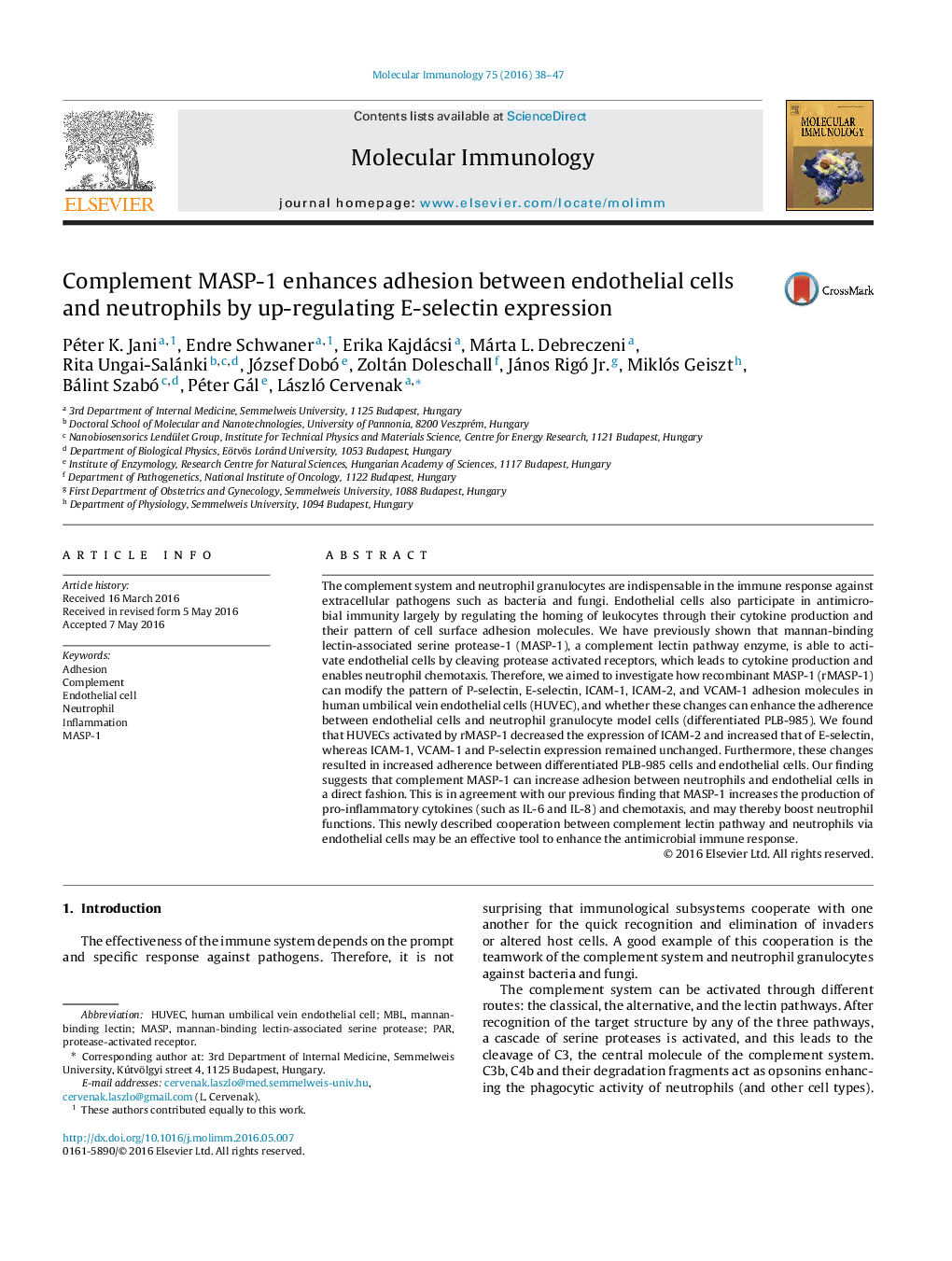| Article ID | Journal | Published Year | Pages | File Type |
|---|---|---|---|---|
| 5916346 | Molecular Immunology | 2016 | 10 Pages |
Abstract
The complement system and neutrophil granulocytes are indispensable in the immune response against extracellular pathogens such as bacteria and fungi. Endothelial cells also participate in antimicrobial immunity largely by regulating the homing of leukocytes through their cytokine production and their pattern of cell surface adhesion molecules. We have previously shown that mannan-binding lectin-associated serine protease-1 (MASP-1), a complement lectin pathway enzyme, is able to activate endothelial cells by cleaving protease activated receptors, which leads to cytokine production and enables neutrophil chemotaxis. Therefore, we aimed to investigate how recombinant MASP-1 (rMASP-1) can modify the pattern of Pâselectin, Eâselectin, ICAMâ1, ICAMâ2, and VCAMâ1 adhesion molecules in human umbilical vein endothelial cells (HUVEC), and whether these changes can enhance the adherence between endothelial cells and neutrophil granulocyte model cells (differentiated PLB-985). We found that HUVECs activated by rMASP-1 decreased the expression of ICAM-2 and increased that of E-selectin, whereas ICAM-1, VCAM-1 and P-selectin expression remained unchanged. Furthermore, these changes resulted in increased adherence between differentiated PLB-985 cells and endothelial cells. Our finding suggests that complement MASP-1 can increase adhesion between neutrophils and endothelial cells in a direct fashion. This is in agreement with our previous finding that MASP-1 increases the production of pro-inflammatory cytokines (such as IL-6 and IL-8) and chemotaxis, and may thereby boost neutrophil functions. This newly described cooperation between complement lectin pathway and neutrophils via endothelial cells may be an effective tool to enhance the antimicrobial immune response.
Keywords
Related Topics
Life Sciences
Biochemistry, Genetics and Molecular Biology
Molecular Biology
Authors
Péter K. Jani, Endre Schwaner, Erika Kajdácsi, Márta L. Debreczeni, Rita Ungai-Salánki, József Dobó, Zoltán Doleschall, János Jr., Miklós Geiszt, Bálint Szabó, Péter Gál, László Cervenak,
